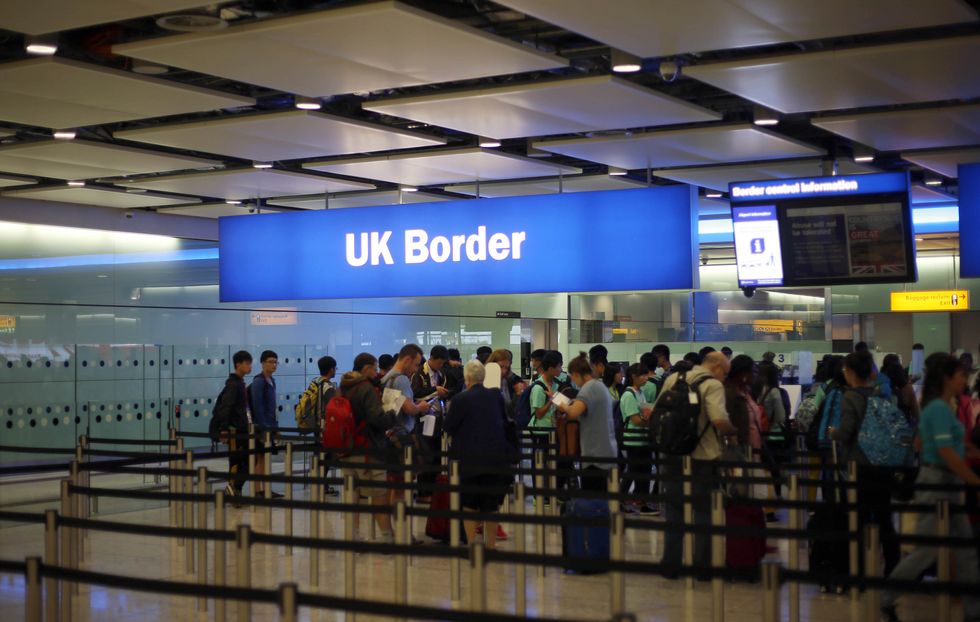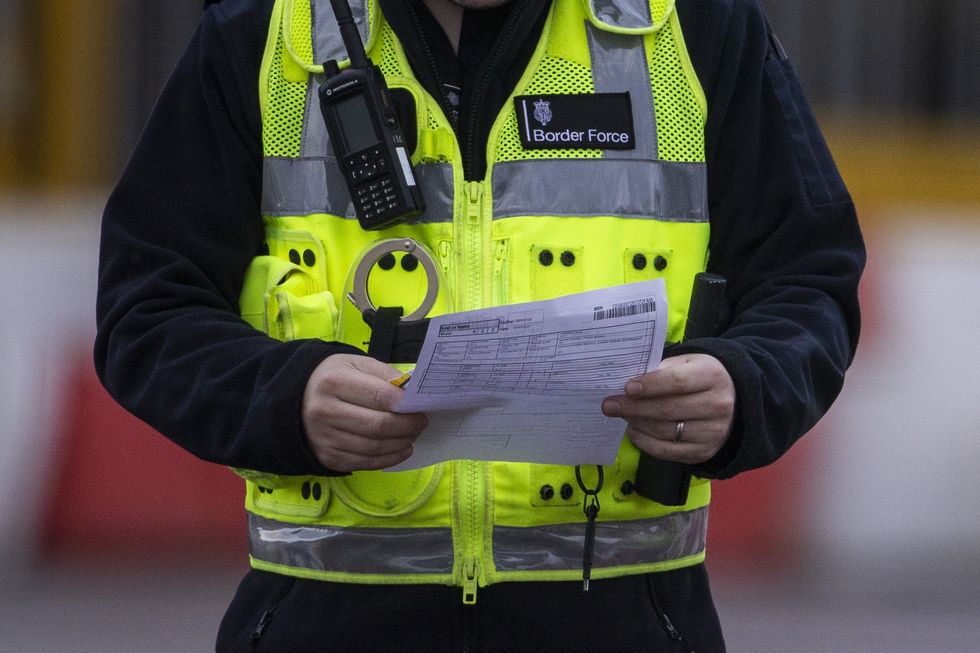Hundreds of foreign murderers, rapists and child sexual abusers are being allowed into Britain from overseas, new police figures show.
The violent offenders are exploiting “weaknesses” in Britain’s visa system which enable them to enter the country in the face of post-Brexit rules which allow the Government to ban any foreign criminals who have been jailed for more than a year.
The criminal migrants are allowed to declare themselves whether they have committed serious crimes to secure a UK visa – and can only be exposed if they’re arrested in Britain.
Only once arrested can UK police and law enforcement agencies check a foreign suspect’s criminal background through the UK’s Acro criminal records office, which then has to chase down information from officials in the person’s home country.

Only once arrested can UK police and law enforcement agencies check a foreign suspect’s criminal background
PA
New Acro data unearthed under freedom of information (FOI) laws by The Telegraph shows that checks with Romanian officials have turfed up over 700 cases in just three years of UK suspects having a criminal record in Romania for murder, manslaughter, rape or a child sex offence.
The FOI request revealed that in the last three years, the agency has carried out almost 320,000 criminal record checks on arrested foreign nationals.
Based on a sample of just five nationalities, these checks turfed up 524 cases of existing murder or manslaughter convictions, 441 rape convictions and 592 incidents of child sex offences abroad.
One of the most high-profile cases saw Lithuanian Vytautas Jokubauskas, 59, murder his partner before dismembering her and cramming her torso into a suitcase.
READ NEXT:
- Fury in London as asylum seekers ‘could get free travel’ while locals are ‘shafted’ with ticket price hike
- Gun-wielding Iranian dubbed ‘the best smuggler’ jailed after helping scores of migrants cross Channel
- Labour blasted for ‘fast track’ of Afghan, Iranian and Syrian migrants – ‘The traffickers are laughing!’

Lithuanian murderer Vytautas Jokubauskas had been jailed in his homeland in 1992
CAMBRIDGESHIRE POLICE
Jokubauskas, who was living in Peterborough, strangled his 42-year-old girlfriend Ramute Butkiene with a dressing gown cord before dismembering her.
At the end of his trial, it came to light that he had been jailed in his homeland in 1992 for a brawl in which he killed a man.
A former senior Border Force and immigration officer told The Sunday Telegraph: “It is a weakness in the current system but it’s difficult because individual countries’ criminal records databases are not networked. Even if they were to be, it raises quite a big privacy issue.”
It’s understood that officials had considered imposing tougher visa requirements after Brexit – including requiring travellers to the UK to get a police certificate confirming they had no criminal record before getting one – but eventually decided against the plan.

Background checks ‘would bring the visa system to a grinding halt in places like India and Pakistan’, the former Border Force officer said
PA
The ex-officer added: “It’s tricky because it would bring the visa system to a grinding halt in places like India and Pakistan because it would take so long to furnish those certificates… And then there would be forgeries.”
Shadow Home Secretary Chris Philp has called for a beefed-up background checks system like the American electronic travel authorisation, or ETA.
He said: “It is vital where foreign nationals are found to have committed serious offences here or elsewhere that they are rapidly returned to their country of origin. We can’t have known foreign criminals roaming our streets.”
A Home Office spokesman said: “Those applying for a visa to come to the UK are required to declare any criminal convictions and are subject to checks against UK police databases, watchlists and immigration databases.

Shadow Home Secretary Chris Philp has called for a beefed-up background checks system
GETTY
“They may be refused if they have a criminal conviction, a history of serious or persistent offending or have failed to declare convictions.
“Our police also carry out routine checks for overseas criminal convictions on foreign nationals who are arrested, and where serious convictions are found, individuals are referred to Immigration Enforcement for deportation consideration.”
A spokesman for Acro said: “The UK has well-established mechanisms for exchanging information on criminal records with other countries. This helps UK police pursue criminal investigations and safeguard communities.”